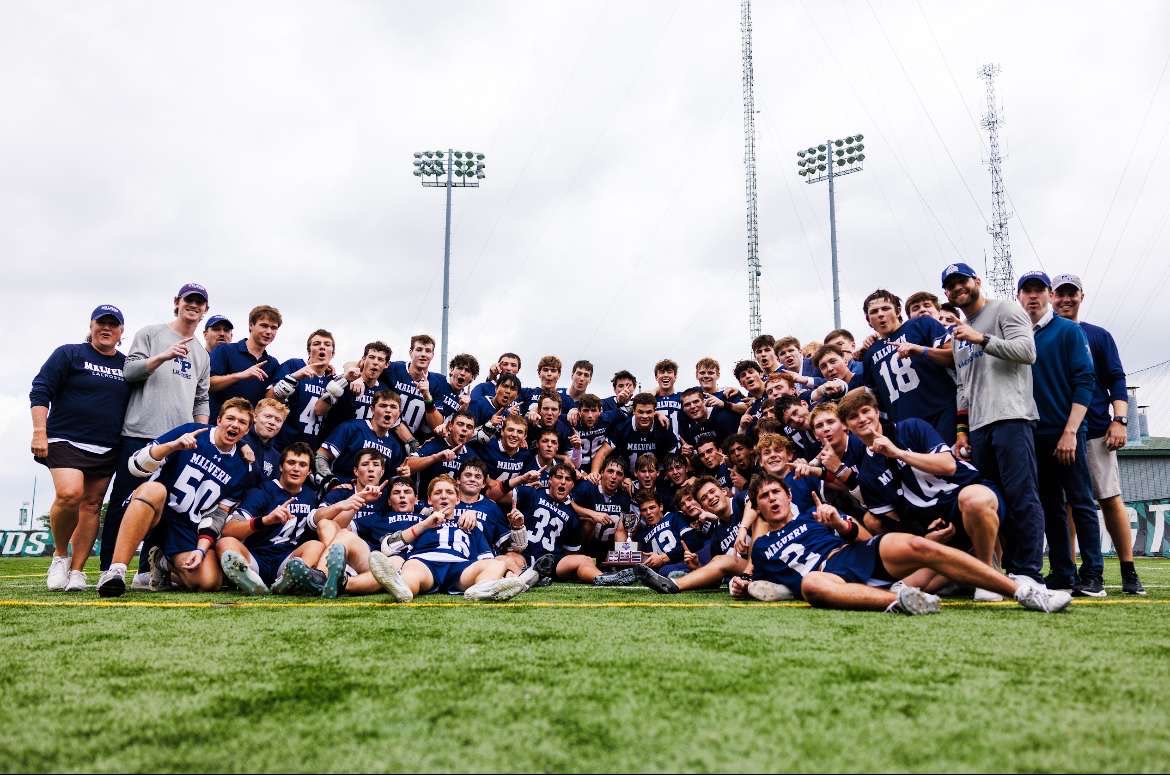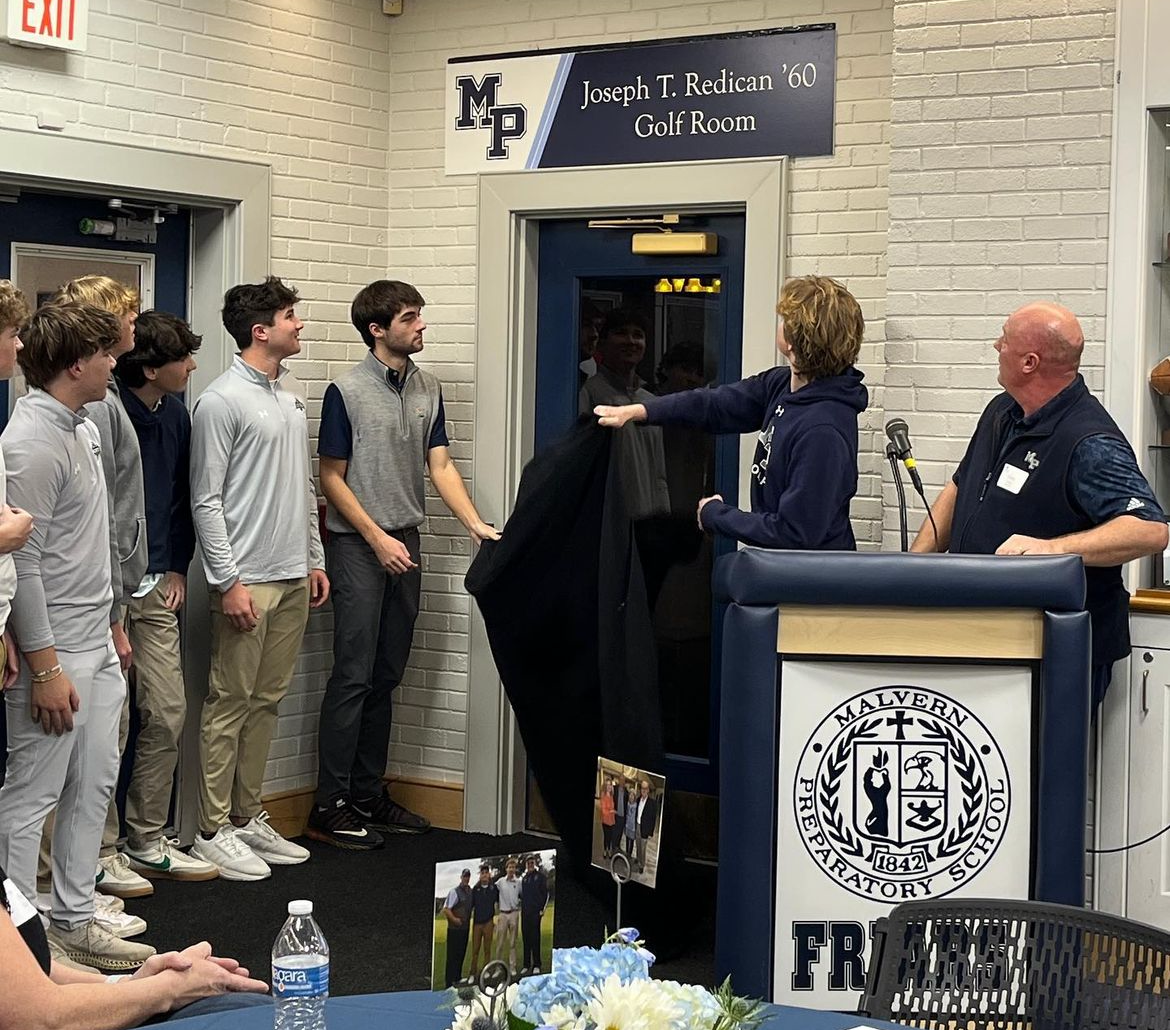According to ESPN, about 40 million people play fantasy football in the USA, and at Malvern many participate. Especially at Malvern, people of all ages play, from middle schoolers to teachers, they all enjoy participating in fantasy football. While this might not be surprising at a sports-dominated school, Malvern students and faculty alike take their fantasy teams very seriously and have different rituals they honor in their fantasy process.
A consistent trend is that Malvern students and teachers think that the Eagles are more important than their fantasy teams.
“I will always root for the Eagles over my fantasy team in any circumstance,” George Irish, an 8th grader, said.
Another instance of this trend emerged when talking about which NFL players will be drafted onto a person’s fantasy team. Many Eagles’ fans, including 9th Grade Student Academy Leader Jeff Carroll ‘02, are against drafting rival team players.
“I will never draft a Cowboys player,” Carroll said.
Another recurring theme is the different reasons people play in the first place. It seems everyone plays with people they are close with, whether it be friends or family, but people’s reasons for getting into these leagues differ. Some people play purely because it is a fun thing in which to participate. Others play because they got roped into it by a friend or family member. Some people play for the competitive aspect of the game, when your team is competing every week just like the pros on TV, it can feel very competitive and add excitement for all NFL games.
Consistent throughout all of the participants is the desire to win. No matter how they ended up playing, they all put in effort to try to win every week.
“I try my hardest to win on the weekly,” Carroll stated.
The drive to win every week could be related back to rewards and punishments for winning or losing. A common fantasy football occurrence is that people play for something. Whether you play to avoid punishment, or for reward, there is almost always incentive. Sometimes there is both a prize and a penalty involved. People will use this when deciding if they want to put in the effort to win.
“I always make sure to check my lineup in order to make sure that my team has the best chance to win,” Quinn Riley, an 11th grader, said.
The prizes range anywhere from winning 50 bucks to winning hundreds of dollars, and it is understandable why people want to win. Another reason to win is bragging rights. Who doesn’t want to beat their friends? When you finish the season and you are the winner, you can look back and remind all your friends how you beat them.
A big incentive not to lose is punishments. Punishments range anywhere from owing the winner money, to embarrassing acts. One of the punishments that was frequently brought up was being in a dog cage and everyone gets to pour condiments and seasonings on you. This brings fear of losing, and people stay interested in the game. Sometimes people stop checking their teams, and it becomes unfun to play against because people aren’t even competitive. Punishments keep this behavior in check and keep the game competitive or engaging.
Another common tendency is how fantasy football makes it more interesting to watch other NFL games. Many people brought up how they will watch other games in order to check on their team, even when it’s not the Eagles.
“Yes, I am very into the game for my players because they are my favorite players on that specific team, and they’re on my team,” Sutton Dvorak, a 9th grader stated.
This brings in more depth to fantasy because people are now inadvertently doing research on other players by watching them play. Now after a few games, people know who they may want to try to acquire via trades or free agency. This makes fantasy teams more like the actual NFL.
Fantasy is also beneficial for many other people outside participants; it brings in revenue for the NFL because more people watch, and it brings more popularity to the players. It also brings jobs, because social media influencers and others like ESPN staff create content around fantasy football.
Fox Sports reports, “FANTASY NFL is an industry worth approximately $70 billion.” Fantasy football is a game of luck more than skill, because most aspects of the game are out of individual’s control due to the players potentially getting injured, having an off week, having an unexpectedly amazing game, or getting benched, not to mention a team’s weekly matchup. With all this, millions of Americans continue to invest money, risk winning, losing, or suffering embarrassing consequences, and come back for more every year. Fantasy plays a big role in the majority of NFL viewers’ lives, including many Malvern students and teachers.








